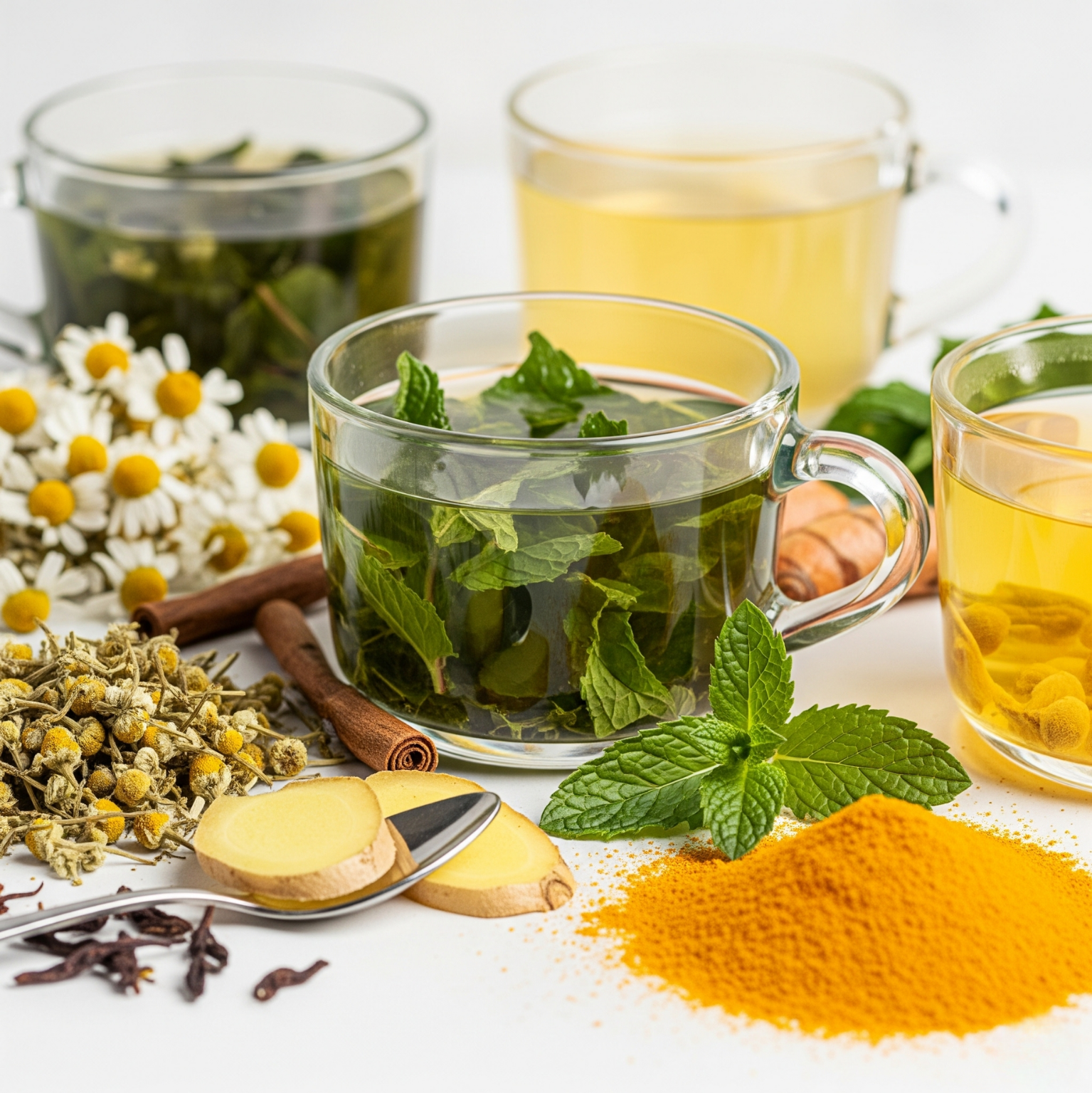
Herbal Teas That Support Digestion
After gastric sleeve surgery, the digestive system becomes more sensitive and the stomach capacity is reduced. For this reason, herbal teas that ease digestion should be preferred. Fennel, chamomile, and mint teas stand out with their soothing effects on the stomach. In particular, fennel tea is often recommended in the postoperative period due to its gas-reducing and antispasmodic properties. Chamomile tea helps balance stomach acidity, while mint tea supports digestion and may reduce nausea.
Avoiding Gas-Producing Herbal Teas
Some herbal teas may cause bloating after gastric sleeve surgery due to their gas-producing effects. Especially anise tea and certain mixed herbal blends can lead to abdominal bloating. Such teas should be avoided as much as possible in the first few months after surgery. Gas and bloating can cause pain and discomfort in the stomach area, which may negatively affect the healing process.
Green Tea and Caffeine Content
Green tea is considered healthy due to its antioxidants, but its caffeine content should be carefully evaluated after gastric sleeve surgery. Caffeine may increase stomach acid and irritate a sensitive stomach. It can also reduce hydration, which is especially important after surgery. Generally, one cup of green tea per day may be tolerated, but individual tolerance should always be considered.
Effects of Fennel, Chamomile, and Mint Teas
Fennel tea relaxes the stomach muscles, supports digestion, and reduces gas formation. Chamomile tea protects and soothes the stomach lining with its anti-inflammatory properties. Mint tea helps reduce nausea and can stimulate digestion. These three herbal teas are safe options after surgery and are often recommended even during the liquid and soft-food stages due to their stomach-soothing effects.
Timing of Herbal Tea Consumption
The timing of herbal tea intake is important in a post-gastric sleeve diet. Drinking them at least 30 minutes before or after meals prevents unnecessary stomach filling. Teas should not be consumed too hot; lukewarm or slightly cooled teas are better tolerated. Drinking a few small cups per day in moderation helps maintain hydration balance.
Herbal Teas That Promote Satiety
Supporting the feeling of fullness is crucial after gastric sleeve surgery. Some herbal teas, especially fennel and chamomile, may provide a mild sense of satiety. They can help manage hunger cravings. However, overconsumption may unnecessarily fill the reduced stomach capacity and cause confusion about satiety signals.
Can Herbal Tea Replace Water Intake?
Fluid intake is vital after surgery, and water remains the primary source. While herbal teas support fluid intake, caffeinated or sweetened teas should be avoided. Similar to plain water, herbal teas can help prevent dehydration. However, since some teas may have diuretic effects, water intake should not be completely replaced with herbal teas. Sufficient plain water consumption must always be ensured.
Effects on Liver and Spleen
Some herbal teas may affect the liver and spleen, especially with long-term or high-dose consumption. Considering metabolic changes after gastric sleeve surgery, liver and spleen function should be taken into account when choosing herbal teas. Individuals with a history of liver disease should always consult their doctor before consuming herbal teas regularly.
Herbal Tea Allergies and Side Effects
Each herbal tea may cause allergic reactions due to its natural compounds. For example, chamomile tea can trigger rashes or shortness of breath in some individuals. In addition, herbal teas may interact with medications. Since certain drugs are prescribed after surgery, compatibility should always be checked with a healthcare provider before consuming herbal teas.
Recommended Daily Amount of Herbal Tea
After gastric sleeve surgery, daily herbal tea intake should usually be limited to 2–3 cups. Excessive consumption can overfill the stomach, reduce water intake, and cause side effects. Herbal teas should be considered as a supportive part of hydration but never a replacement for water.
Conclusion
When chosen correctly, herbal teas after gastric sleeve surgery can be healthy beverage alternatives that aid digestion, reduce bloating, and promote satiety. Fennel, chamomile, and mint teas are generally safe choices, while caffeinated and gas-producing teas should be avoided. Timing, moderation, and individual tolerance must be taken into account. For the safest approach, always consult your bariatric dietitian and surgeon regarding herbal tea consumption.

